Promoting Sustainable Agriculture and Environmental Responsibility
Climate change is one of the most pressing challenges of our time, particularly for rural communities that rely on agriculture for their livelihoods. Erratic rainfall, prolonged droughts, and soil degradation threaten food security and economic stability. Recognizing the urgent need for climate action at the grassroots level, HADEO launched its Climate Change Pilot Program in 2024, focusing on reforestation, sustainable agriculture, and community-led environmental stewardship.
Through this initiative, HADEO distributed 4,000 small eucalyptus trees to the Angod A group to promote afforestation and combat deforestation. The group, composed of local farmers and community members, is responsible for nurturing and managing the trees, with technical support from the Ngora District Agricultural Officer.
This project is a practical approach to mitigating climate change, restoring degraded land, and creating long-term economic benefits through agriculture and livestock integration.
Why This Project Matters
- Restoring the Environment – Trees play a crucial role in absorbing carbon dioxide, preventing soil erosion, and improving air quality. By planting eucalyptus trees, the Angod A group contributes to reforestation and climate resilience.
- Sustainable Agriculture – Integrating tree planting into farming systems enhances soil fertility, provides shade, and supports water conservation—key elements for sustainable food production.
- Economic Empowerment – Beyond environmental benefits, the project aims to create long-term income opportunities for participants. Once the trees mature, members can use them for timber, firewood, and other sustainable products.
- Expanding to Livestock Farming – If the project is successful, HADEO plans to provide two young female sheep to each group member, along with two male sheep for the entire group. This initiative encourages small-scale animal husbandry, diversifying income sources and improving food security.
Project Implementation: A Community-Driven Approach
The Angod A group was selected based on its commitment to sustainable farming and environmental conservation. To ensure the project’s success, HADEO follows a structured implementation plan:
1. Tree Distribution & Training
- 4,000 eucalyptus seedlings were provided to the group in early 2024.
- Members received training on tree care, soil conservation, and water management from the Ngora District Agricultural Officer.
2. Community Engagement & Monitoring
- Regular monitoring visits ensure that the trees are thriving and properly maintained.
- The group follows a collective responsibility model, where each member plays a role in nurturing the trees.
3. Sustainable Livelihood Expansion
- Based on the success of the tree-planting phase, HADEO will introduce livestock farming as an additional sustainability measure.
- Each member will receive two female sheep, and the group will share two male sheep to promote breeding and income generation.
The Impact of the Climate Change Project
1. Environmental Benefits:
- Increased tree cover reduces deforestation and restores degraded land.
- Enhanced soil health supports long-term food production.
- Promotion of sustainable water management in farming practices.
2. Economic & Social Benefits:
- New income opportunities from eucalyptus trees (timber, firewood, and soil conservation).
- Strengthened food security through diversified farming activities.
- Community empowerment through shared responsibility and training.
3. Future Sustainability Goals:
- Integrating livestock farming as an additional livelihood source.
- Expanding the model to more villages and farming groups.
- Promoting climate-smart agriculture techniques across Ngora and Soroti districts.
Looking Ahead: Scaling the Impact
The Climate Change Project is just the beginning. With this pilot phase underway, HADEO aims to expand the program to additional groups and introduce more climate-smart farming practices, such as:
- Agroforestry: Combining trees and crops to improve soil and water retention.
- Livestock Integration: Encouraging sustainable livestock farming alongside tree planting.
- Water Conservation Techniques: Training farmers in rainwater harvesting and efficient irrigation.
With continued community engagement, strategic partnerships, and donor support, this initiative has the potential to transform rural communities by making them more climate-resilient and economically self-sufficient.



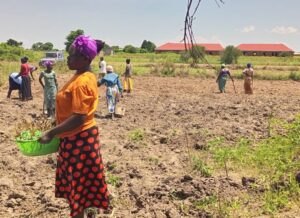
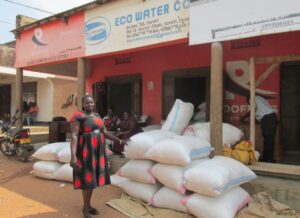
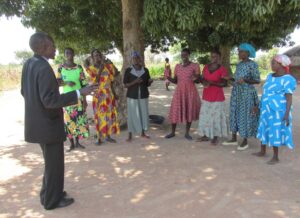
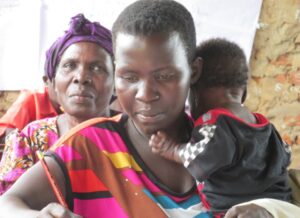
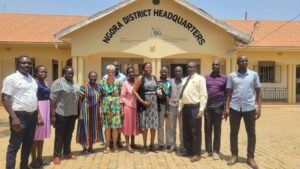
Leave a Reply